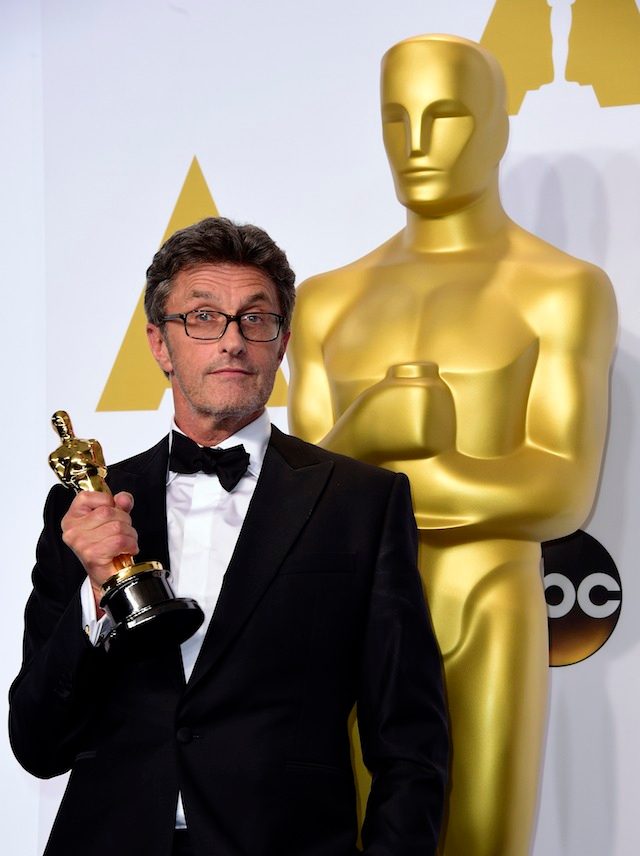SUMMARY
This is AI generated summarization, which may have errors. For context, always refer to the full article.

WARSAW, Poland – Poland cheered the Oscar award for director Pawel Pawlikowski’s “Ida” for best foreign language film, hailing it as overdue recognition of the nation’s movie-makers and a renaissance of the local industry.
“It’s Polish cinema’s greatest success,” Culture Minister Malgorzata Omilanowska told the PAP news agency, adding that the award confirmed “our deep conviction that ‘Ida’ deserves all the prizes on earth”.
Veteran Polish director Andrzej Wajda, awarded an honorary Oscar for lifetime achievement in 2000, hailed Pawlikowski’s victory as “a very beautiful day”.
“With our return to freedom in 1989 state-funded cinematography dried up,” he said, referring to the fall of communism.
“Polish film-making plunged into crisis… and now we’re witnessing its renaissance,” the 88-year-old, who has four Oscar nominations under his belt, told Poland’s leading Gazeta Wyborcza newspaper.
“Before this, we have had 9 nominations (in the category), and never won,” said composer Jan A.P. Kaczmarek, himself an Oscar winner for his music in the 2004 film “Finding Neverland”.
“(This) breaks a kind of curse,” Kaczmarek added. “It gives us courage. Now that the barrier has been scaled, it will be easier to hurdle in the future.”
The delight the film’s Oscar victory Sunday, February 22, has unleashed contrasts with the somber, unflinching and at times controversial story told in the stark black-and-white movie.
It tells the story of Ida (played by newcomer Agata Trzebuchowska), a young woman in 1960s communist Poland who learns as she is about to take her vows at a Catholic convent that she is Jewish.
During travels with her aunt, a disillusioned Stalinist-era official formerly involved in the regime’s persecution of opponents, Ida discovers her parents were murdered under Nazi occupation at the time of the Holocaust, after which she is entrusted to nuns to be raised.
Divided opinion
Critics in Poland have variously complained the minimalist aesthetic of “Ida” gives the impression average Poles were active Holocaust participants, while others have said it relies on overly simplified stereotypes of anti-Semites and communist functionaries alike.
But much like Pawlikowski – who has refused to discuss a controversy he has called too silly to bother with – fans of “Ida” held up the film’s Oscar win as evidence of its social and artistic merits.
Three-time Oscar nominee Polish director Agnieszka Holland said the award recognized “the simplicity of this movie, and the universal space in it where people can place their emotions, their feelings”.
The film’s appeal has also been confirmed in box office activity, notably in France and the US, where “Ida” sold around a half million tickets respectively.
Prior to its Oscar anointment, the movie had collected awards in Toronto, Riga, Minsk and London – where “Ida” won the prestigious Bafta for best foreign language film earlier this month.
For his part, Pawlikowski proved as focused in Oscar victory as he has been unflappable before the controversy “Ida” has sparked among some Poles.
“We made a film about… the need for silence and withdrawal from the world and contemplation, and here we are. At the epicentre of noise and world attention. Fantastic, you know,” Pawlikowski told the Oscars audience at the Dolby Theatre in Hollywood.
“Life is full of surprises.” – Rappler.com
Red Carpet:
- IN PHOTOS: 20 Best dressed, Oscars 2015
- Oscars 2015: 8 sweetest couples
- IN PHOTOS: Red Carpet, Oscars 2015
Acting Category Winners:
- Oscars 2015: JK Simmons wins Best Supporting Actor
- Oscars 2015: Patricia Arquette wins Best Supporting Actress
- Oscars 2015: Eddie Redmayne wins Best Actor
- Oscars 2015: Julianne Moore wins Best Actress
More Oscars 2015 on Rappler:
- Oscars 2015: 10 unforgettable moments
- FULL LIST: Winners, Oscars 2015
- Stephen Hawking to Eddie Redmayne on Oscar win: ‘I’m very proud of you’
- So how did Neil Patrick Harris do as host of Oscars 2015?
- Oscars 2015: Watch Neil Patrick Harris in awesome opening number
- Oscars 2015: Meet ‘Glom Gazingo,’ or John Travolta, presented by Idina Menzel
- Oscars 2015: Watch Maroon 5’s bathroom ‘Lost Stars’ rehearsal
- Italy indignant over Oscars 2015 snub for cinema ‘maestro’
- Oscars 2015: ‘Birdman’ wins Best Picture
- LIVE UPDATES: Oscars 2015
- FULL LIST: Oscar 2015 Nominees
- 10 things to look out for on Oscars night
- 9 fun facts about the 2015 Oscars
- Too white, too male: Oscars accused over nominees
- Neil Patrick Harris to host 2015 Oscars
Add a comment
How does this make you feel?
There are no comments yet. Add your comment to start the conversation.